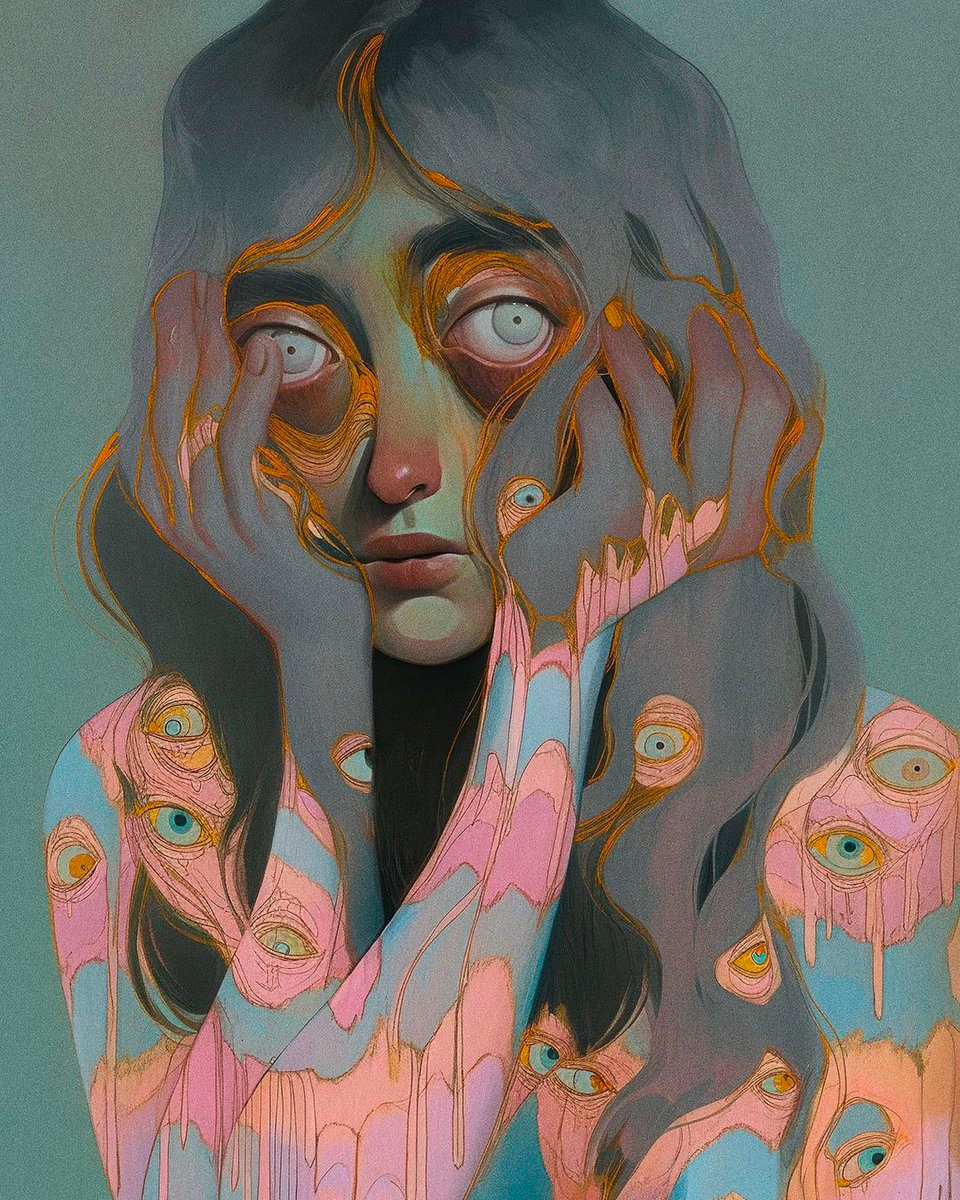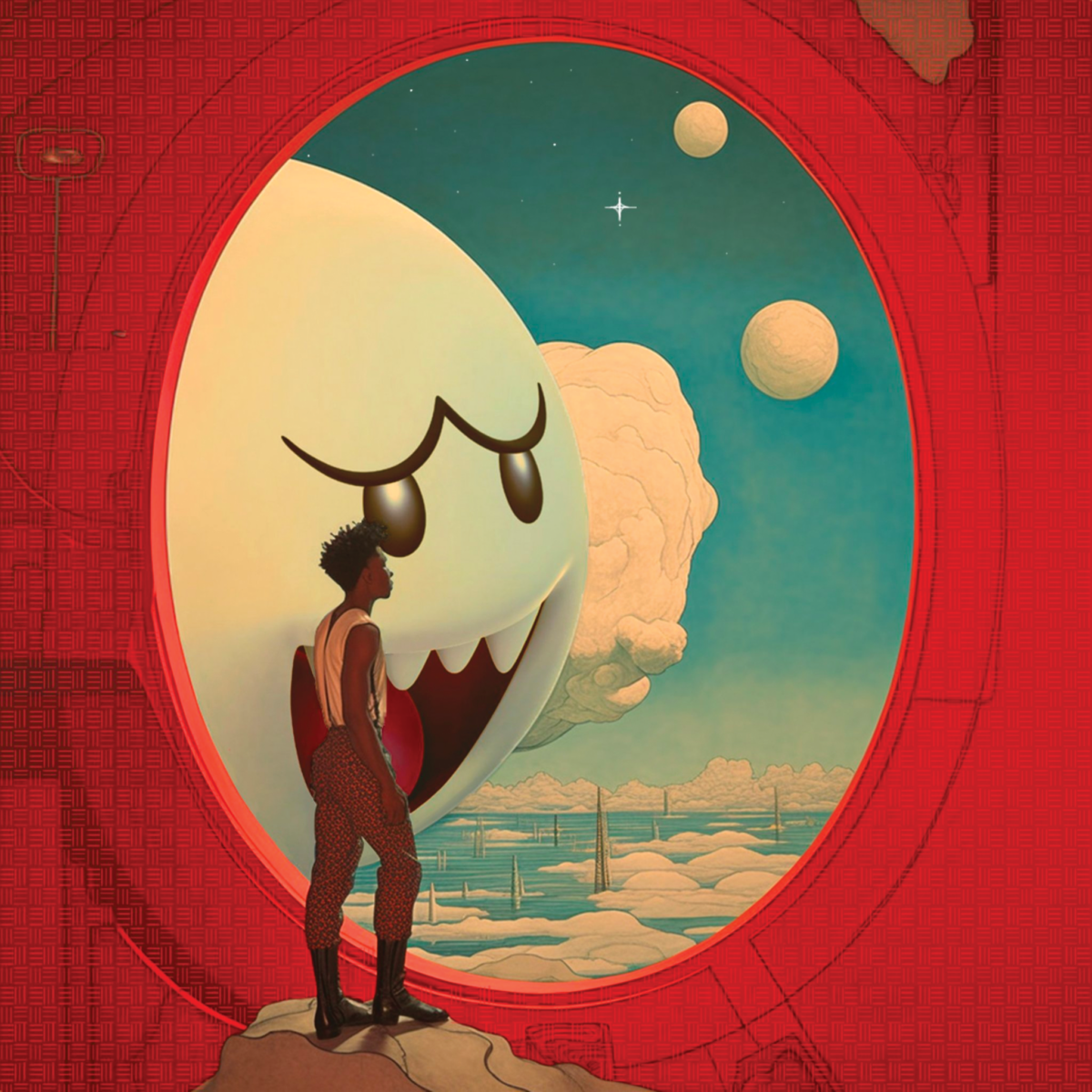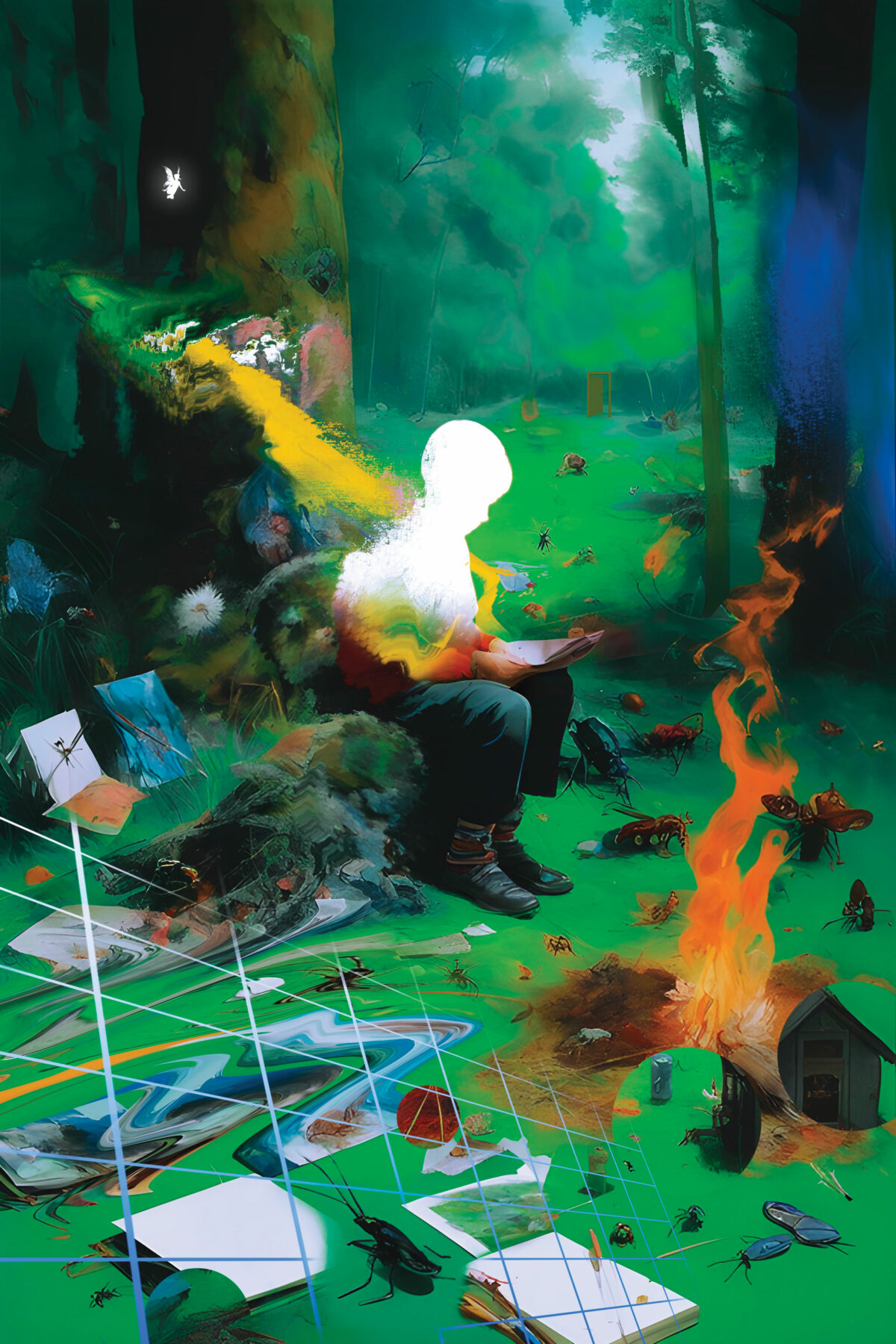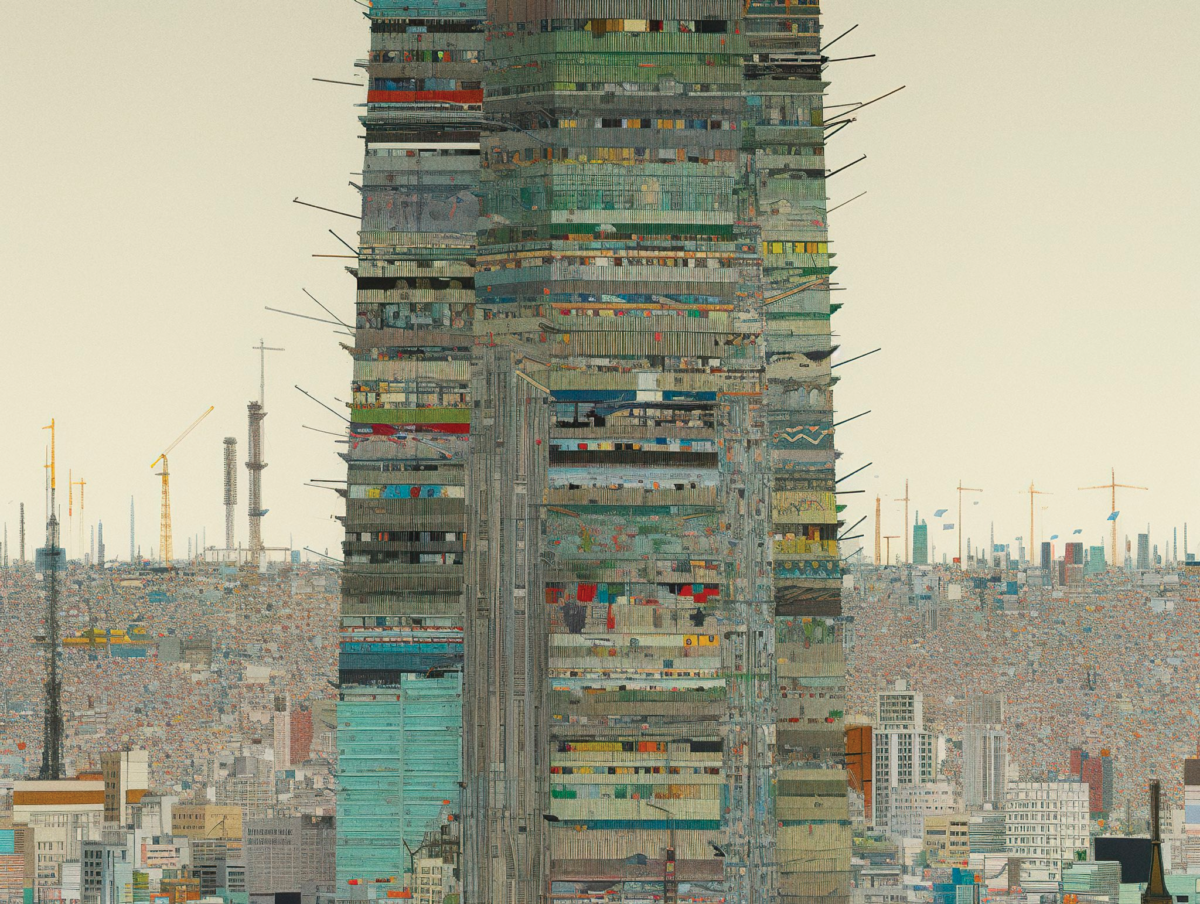Celebrated Web3-based artist Claire Silver has teamed up with Unit London to curate the gallery’s latest exhibition, E-Motions.
The exhibition takes a close look at the relationship between artists and technology, specifically, those who collaborate with artificial intelligence and the communion that instills.
Another underlying theme of the exhibition is the phenomenon of hikikomori, a cultural movement that continues to spread throughout Japan and other parts of the world. The exhibition is brought to life through the lens of 26 different participating artists, five of whom we’ve highlighted below.
The Concept
Hikikomori, which when literally translated into English means to pull inward or to be confined, is seen as a health crisis by officials in Japan, who define those suffering from it as individuals who haven’t left their homes or interacted socially for a period of six months or more.
While hikikomori specifically is a Japanese phenomenon, parallels can be drawn to other countries and societies around the world that are facing the same pressures due to overwhelming information and the pressure to always perform at their best.
In E-motions, participating artists channel these feelings and bring them to life using a range of different AI programs, finding a silver lining in the broader experience of hikikomori and highlighting the complementary or communion-like relationship AI systems can provide.
The Artists
Speakingtomato: Overobserving
Turkey-based digital artist Speakingtomato who is coming up on the 16th year of her artistic journey, specializes in the creation of surrealist images that take camera portraits and make them dreamlike. These images act as narrations of her life’s story as well as her own dreams.
The artist often uses AI as a starting point in her works, further refining outputs manually through tools like Photoshop, where she aims to bring together elements of modernism, surrealism, and symbolism. Beyond being celebrated for her works on an international scale, Speakingtomato is also a member of MAIF and a passionate collector, having acquired over 200 blockchain-based works.

In her work Overobserving, the artist says “Boundless vistas of the internet unfold before us, offering a wealth of knowledge and experiences at our fingertips.” She further expresses that amidst the abundance, we walk a fine line between enlightenment and saturation and that the constant flow of information can often challenge our ability to absorb and reflect.
Overobserving was recently collected by Tinoch Chan.
Chelsea Jones: Beyond the Horizon
Chelsea Jones is a self-taught artist with six years of experience in visual design and traditional oil painting. She explores the intersection of traditional painting techniques and modern technology, particularly artificial intelligence, to create beautiful and surreal artworks that celebrate black culture and personal stories. She aims to bring representation to the art world through playfulness, nostalgia, surrealism, and the profound depths of black culture. What’s more, Jones has been known to produce her AI-assisted works as physical editions, further expanding the reach of her work.

In her work Beyond the Horizon, Jones explores “a realm where the skies intertwine with memories, high above the realm of reality,” where an explorer can be seen peering out of what appears to be a massive window. Jones describes the work as a dive into the heart of nostalgia, with every pixelated memory and digital adventure whispering tales of an era passed — but one that urges us to “dream once more.”
Beyond the Horizon is still available to collect at the time of writing.
Ilya Bliznets: Sketches in the forest
lya Bliznet is a Russian artist who creates figurative paintings and digital art using traditional materials, graphic editors, and AI. His work features a painterly aesthetic and introspective AI-generated pieces. He was part of the “Cosi o cosa” art group in 2017-2018 and has been active in the NFT space since 2022.

In his work Sketches in the forest, Bliznets uses AI to create images or moments that complement the visual range with digital painting and collage techniques. The work aims to convey a magical or surreal effect that reflects the state of a child-like fantasy or dream state. Other themes found in the work include introspection and observation on the artist’s part but also extended as an invitation for the viewer to do the same.
The work was recently collected by Tyler Hobbs.
Szkandal: Concrete
Skandals, a Ukrainian-born, Poland-based new media artist started as a self-taught traditional artist before exploring AI-generated art in 2022. His work features themes of chaos, disorder, and the duality of man through graphic, illustrative imagery, drawing inspiration from graphic novelists like Druillet, Moebius, and Spiegelman. His art often includes intricate fictional architectural and natural settings, designed to encourage deep engagement from viewers.

In his work Concrete, Skandals expresses the interplay of light and shadow, sharing that the harsh lines of the concrete are meant to appear softened as the sun dances across them, revealing a “hidden elegance” — allowing the monolithic structures to become living sculptures.
The work was recently collected by DrLeeNFT.
Tomeo: dark room
Tomeo, a digital artist and philosophy graduate from Universidade Católica Portuguesa in Lisbon, analyzes hauntology and memory using metaphysical interpretations of AI-generated environments. Formerly working in graphic design and Javascript programming, he transitioned to generative art, inspired by photography and film. Through the use of AI and various generative techniques, he crafts images with animated narratives, like dark room, which he says is from a series of works about images of the past slipping from memory.
The work was recently collected by TheNightFox.
Explore all of the other works in Claire Silver’s curated exhibition E-motions presented by Unit London here.

